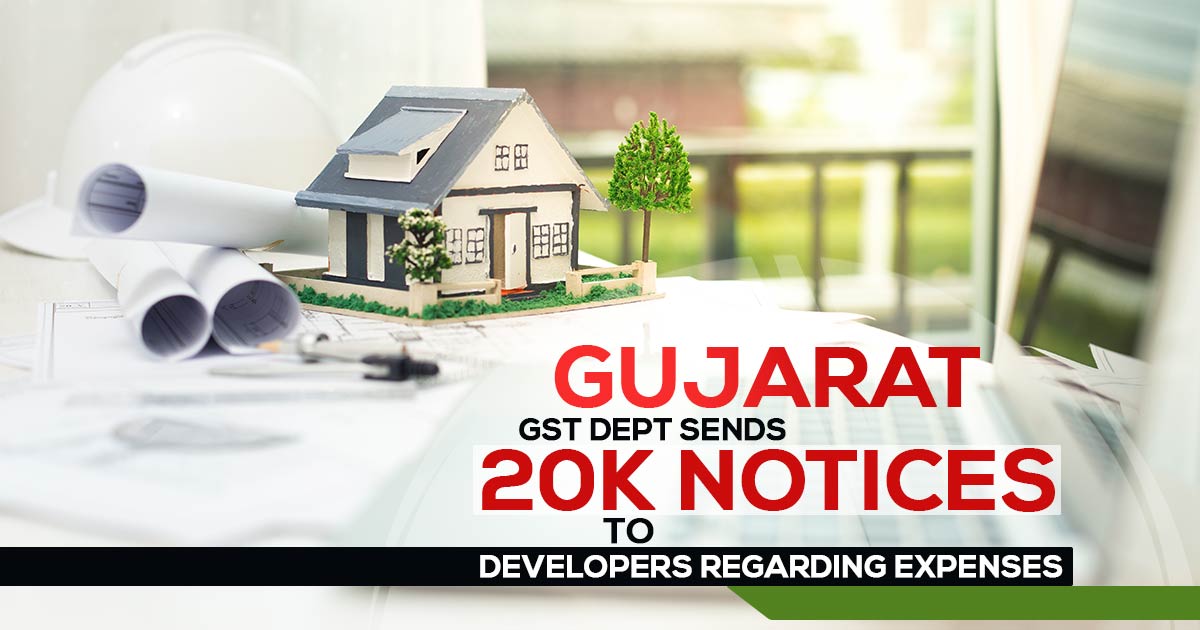
Recently, the State GST department sent out almost 20,000 notifications to a range of taxpayers from different industries, concentrating primarily on real estate developers, requesting explanations regarding their expenses during the 2017–18 fiscal year. GST authorities claim that this scrutiny is a result of the lack of a reliable mechanism to track suppliers’ compliance with GST at that time.
That year, residential real estate was specifically subject to a 12% GST rate, giving developers the option to submit an Input Tax Credit (ITC) application. Developers may have abused the system by getting bogus invoices to raise their costs, but there are no means to verify suppliers’ compliance with GST.
As per a senior official within the GST department of the state, who spoke on the record under the condition of anonymity, approximately 20,000 letters were dispatched to taxpayers in Gujarat whose tax returns were undergoing review. This initiative was undertaken as the deadline for issuing notices for the fiscal year 2017–18 was drawing near.
Under Section 73 of the GST Act, a significant portion of these correspondences were directed at builders, encompassing both the 2017–18 and 2018–19 financial years. Our investigation revealed that several developers had engaged in the falsification of supplier invoices to inflate their expenses. To detect such fraudulent transactions, we have established robust monitoring systems. Developers are presented with the choice of either providing a defence for these transactions or remitting the applicable tax charges.
Chartered Accountant Karim Lakhani provided context, elucidating that, “At the outset, the GST rate for residential real estate stood at 12%, enabling developers to transfer the Input Tax Credit (ITC) advantage to purchasers. Nevertheless, in 2019, the central government modified the GST rates to 1% for affordable housing and 5% for other types of residential properties. In the course of this transition, numerous ongoing projects were granted the flexibility to opt for either the previous or the updated tax frameworks, resulting in a convoluted tax scenario for developers.”









